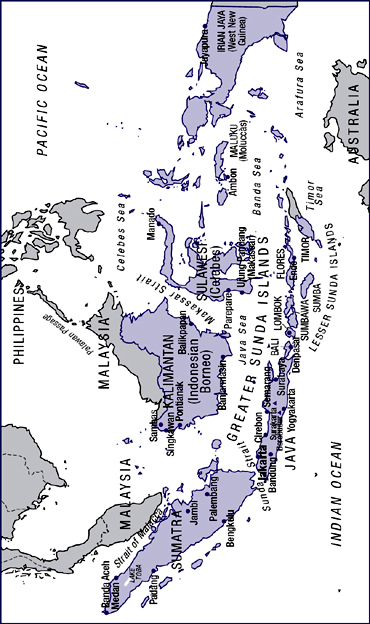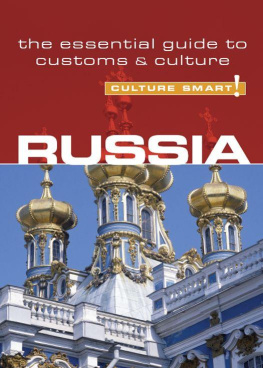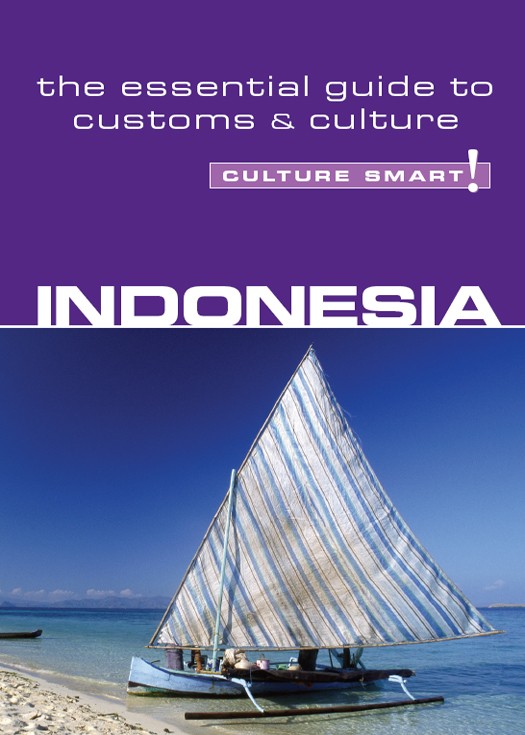First published in Great Britain 2007
by Kuperard, an imprint of Bravo Ltd
59 Hutton Grove, London N12 8DS
Tel: +44 (0) 20 8446 2440 Fax: +44 (0) 20 8446 2441
www.culturesmartguides.com
Inquiries:
Culture Smart! is a registered trademark of Bravo Ltd
Copyright 2007 Kuperard
Revised 2008; second printing
All rights reserved. No part of this publication may be reprinted or reproduced, stored in a retrieval system, or transmitted in any form or by any means without prior permission in writing from the publishers.
Series Editor Geoffrey Chesler
eISBN: 978-1-85733-588-0
British Library Cataloguing in Publication Data
A CIP catalogue entry for this book is available from the British Library
Cover image: Fishing boat on Kanawa Island, Nusa Tenggara. Travel-Ink/Patrick Ford
The photographs are reproduced by permission of the author.
v3.1
About the Author
GRAHAM SAUNDERS has a Ph.D in East Asian studies from the University of Hull, England. An Australian by birth, he spent twenty-eight years teaching in East Malaysia and Brunei, and has made numerous visits to the countries of the region, including Indonesia. He then taught in Cyprus for five years before he and his wife, Anne, settled in England near York. After some part-time university lecturing he retired to run a business specializing in books on Southeast Asia. He is the author of a number of books and articles on the history of Borneo and Southeast Asia.
The Culture Smart! series is continuing to expand.
For further information and latest titles visit
www.culturesmartguides.com
The publishers would like to thank CultureSmart!Consulting for its help in researching and developing the concept for this series.
CultureSmart!Consulting creates tailor-made seminars and consultancy programs to meet a wide range of corporate, public-sector, and individual needs. Whether delivering courses on multicultural team building in the USA, preparing Chinese engineers for a posting in Europe, training call-center staff in India, or raising the awareness of police forces to the needs of diverse ethnic communities, it provides essential, practical, and powerful skills worldwide to an increasingly international workforce.
For details, visit www.culturesmartconsulting.com
CultureSmart!Consulting and CultureSmart! guides have both contributed to and featured regularly in the weekly travel program Fast Track on BBC World TV.
contents
Map of Indonesia

introduction
Indonesia is the worlds largest archipelago. With a population of more than 200 million, it is the fifth most populous country in the world. Its position on the trade routes has produced a rich and diverse culture influenced by animist, Hindu, Buddhist, Christian, and Muslim traditions. The capital, Jakarta, is a teeming megalopolis whose central business and financial district has all the trappings of twenty-first century global enterprise, but whose culture does not necessarily conform to that of the U.S.A. and Europe.
Although European influence began to penetrate the archipelago in the sixteenth century, Dutch colonialism gained full political control over most of the country only in the nineteenth century. From Batavia (Jakarta) the Dutch dominated Java, but their influence in the outer islands was patchy. Consequently, the nationalist movement of the twentieth century was mainly Java-centered. Although Indonesian nationalism was largely secular, Islam retained and continues to have great influence, though filtered through other traditional cultural prisms; Bali remains Hindu, and Christianity is strong in Ambon and also in Minahasa, in northern Sulawesi. European influence is just one element in the cultural blend.
There are some three hundred ethnic groups in Indonesia, the product of centuries of migration and settlement. The differences between ethnic groups and social classes are clearly understood, but underlying this diversity, and the more recent cultural impact of the West, are common core values. The apparently modern and Westernized Indonesian lives according to beliefs and perceptions that the visitor needs to be aware of in order not to offend unintentionally: the principles of social conduct reflect an Asian approach to the world. These values lie deep, and influence behavior that to outsiders may seem irrational or perplexing while statements, gestures, or other conduct perfectly natural to the visitor may produce adverse reactions from Indonesians. In general, though, Indonesians are gracious and will make allowances for strangers.
Culture Smart! Indonesia provides an introduction to this rich diversity while enabling you to avoid some of the social pitfalls when visiting, living, or working in this fascinating and beautiful country. Indonesians are a hospitable and courteous people. By making an effort to understand and respect their values and customs, you will earn their appreciation and friendship.
Key Facts
| Official Name | Republik Indonesia (Republic of Indonesia) |
| Capital City | Jakarta | Pop. 9.3 million |
| Major Cities | Bandung; Cirebon; Semarang; Surabaya; Yogyakarta (Java). Denpasar (Bali). Mataram (Lombok). Medan; Padang; Jambi; Palembang (Sumatra). Pontianak; Banjarmasin; Balikpapan (Kalimantan). Ujung Pandang; Manado (Sulawesi). Ambon (Maluku); Jayapura (Irian Jaya) |
| Main Island Groups | Greater Sunda Islands: Sumatra, Java, Kalimantan (Indonesian Borneo), Sulawesi (Celebes) Lesser Sunda Islands (Nusa Tenggara): Bali, Lombok, Sumbawa, Komodo, Sumba, Flores, Timor, Alor Also: Maluku (the Moluccas), Irian Jaya (West New Guinea) |
| Area | 742,308 sq. miles (1,919,440 sq. km) | 17,508 islands, 6,000 inhabited |
| Climate | Tropical. Hot and humid; more moderate in highlands | Coastal temp. range is 7091F (2133C) throughout year |
| Currency | Indonesian rupiah | Approx. Rp 9,700= U.S. $1 (2005) |
| Population | 245 million | Current rowth rate 1.41% per annum (2006 est.) |
| Ethnic Makeup | Javanese 45% Sundanese 14% Madurese 7.5% Coastal Malays 7.5 % Other 26% |
| Age Structure | 014 years: 28.8% 1564 years: 65.8% 65+ years: 5.4% |
| Language | Bahasa Indonesia (official form of Malay) | 300 regional languages and dialects, with Javanese the most widespread, plus English and Dutch |
| Adult Literacy | Approx. 87% over age 15 (2002 est.) | Male: 92.5%. Female: 83.4% |
| Religion | Muslim 88%; Christian 8% (Protestant 5%, Catholic 3%); Hindu 2%; Buddhist 1%; animist 1% | Belief in God is a tenet of the PancasilaThe Five Principles of the State. |





